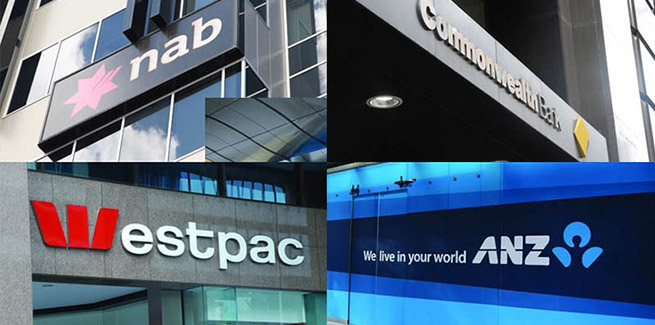According to a new research from UBS analyst Jonathan Mott – which involved a study of data from the Australian Prudential Regulation Authority (APRA) and the major banks – mortgage origination via the big four’s proprietary networks has fallen from a peak of 48.3 per cent in 1H13 to 37 per cent as at the close of 1H19.
ANZ’s branch network has experienced the sharpest reduction in mortgage market share over the period, dropping from 8.5 per cent of total system sales to 4.2 per cent.
Over the same period, the total system share of mortgage approvals via NAB’s branch network fell from 12.7 per cent to 8.4 per cent, while Westpac’s share declined from 10.9 per cent to 8.9 per cent.
The Commonwealth Bank of Australia’s (CBA) reported decline was less pronounced, with its proprietary network’s share of total system mortgage approvals slipping from 16.3 per cent to 15.5 per cent over the years from 1H13 to 1H19.
Meanwhile, the major banks’ share of the broker market increased from 30.6 per cent to 34.5 per cent over the same period.
As a result of the shift in channel origination, the major banks’ share of new home loans has dropped from 78 per cent in 1H13 to 71.4 per cent.
According to Mr Mott, the trend is evidence of the diminished market power of the major banks, which he said would continue to “fade”.
“Although the majors have 79 per cent share of mortgage credit outstanding, new lending competition is likely to intensify as customers continue to migrate away from the major banks’ proprietary distribution,” he said.
“Reputational damage post the [banking] royal commission is likely to accelerate this trend.”
Mr Mott added that the banks’ dwindling share of mortgage originations via their branch networks would ultimately have implications on their underlying financial position.
The UBS analyst said that the banks’ increased exposure to the broker channel would offset any cost-savings measures employed internally, particularly in light of proposed broking industry reforms, which he said could increase home loan switching.
“While the majors may attempt to stabilise [net interest margins] and [return on equity] by not fully passing through further RBA rate cuts to variable rate customers, this NIM benefit will likely be quickly eroded as mortgage brokers find cheaper loans for their customers,” he said.
“The proposed introduction of the best interests duty for mortgage brokers will likely accelerate front-book/back-book churn, especially if annual reviews become best practice for mortgage brokers.”
Mr Mott said he expects the decline in branch-originated home loans to prompt the majors to reduce their proprietary network to cut costs, which would, in turn, further increase their exposure to third-party originators.
“Sales per branch are likely to continue to fall, putting pressure on the banks to further rationalise their distribution,” he said. “This may become a self-fulfilling loop.”
Mr Mott questioned whether banks would evolve into exclusive mortgage underwriters if such trend continues in the long term.
“If these trends are not addressed, could banks eventually become mortgage underwriters rather than distributors?” he stated.
The UBS research follows the release of APRA’s latest monthly authorised deposit-taking institutions statistics, which revealed that three of the big four banks reported mortgage book contractions in July, compared to only one of the five largest non-major lenders.
[Related: 3 of the big 4 report mortgage book contractions]
 ;
;
